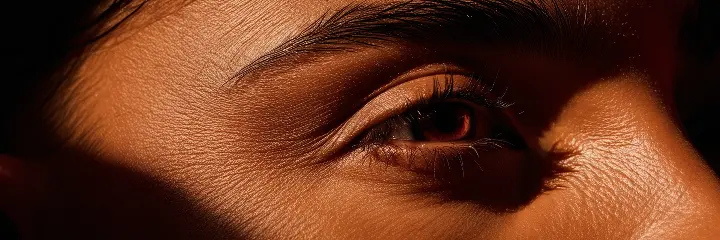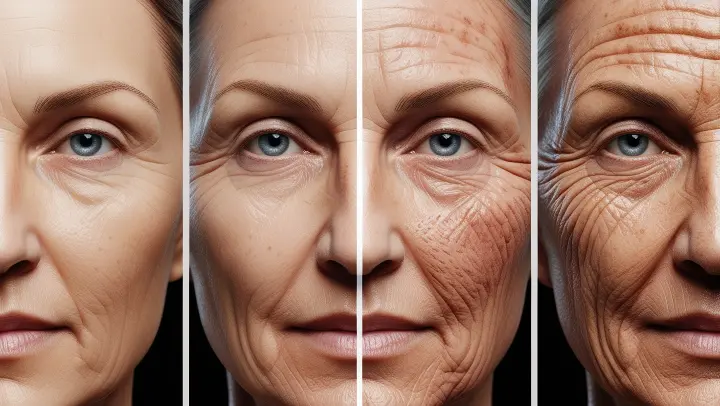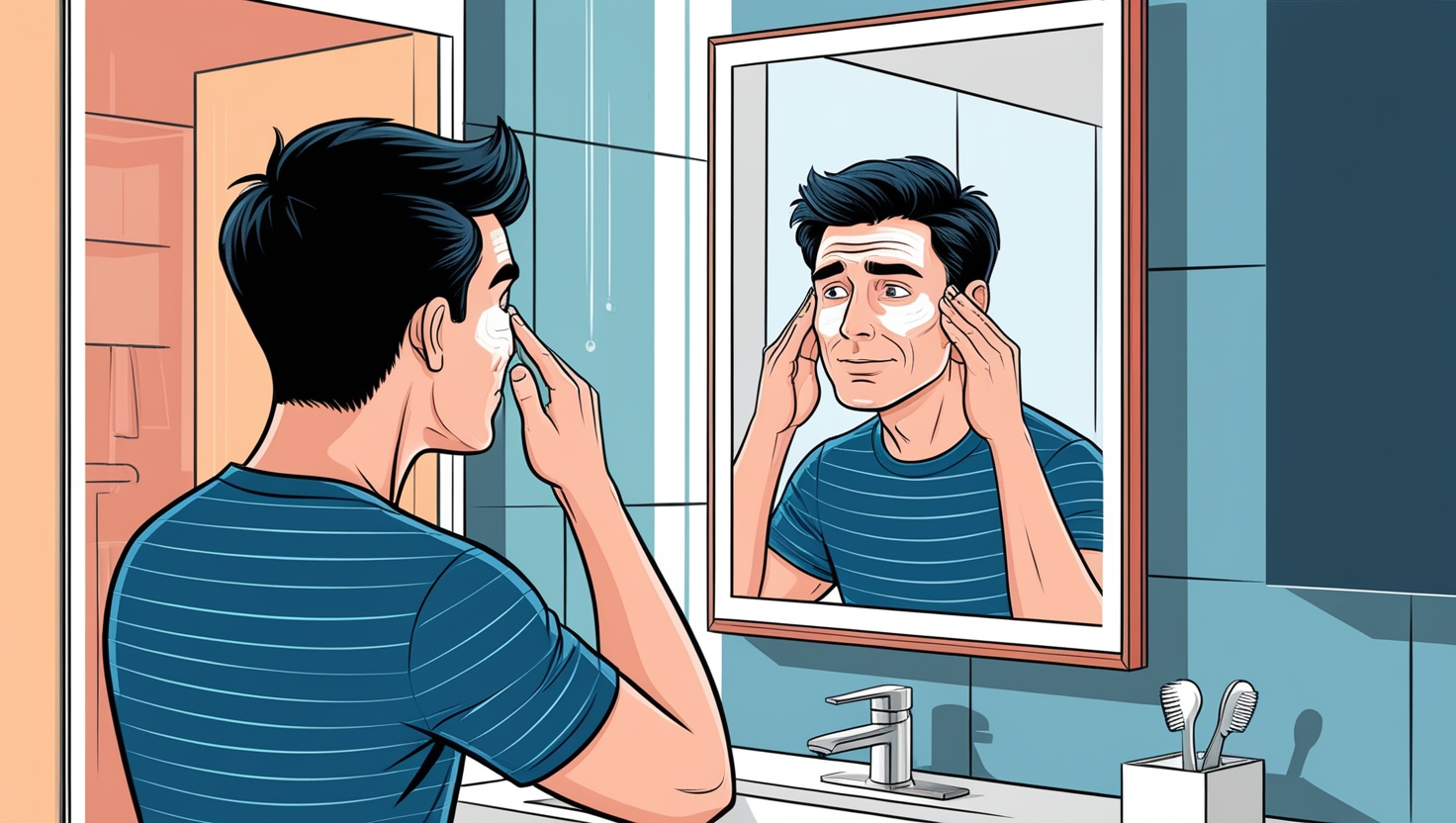Understanding how sugar affects the skin is a critical part of modern skincare and health routines. Is sugar slowly working against your radiant complexion? Let's peel back the layers to uncover the truth about sugar and skin aging.
Understanding Sugar and Glycation

What is Glycation?
It is a biochemical disaster in which sugar molecules attach themselves to proteins such as collagen and elastin without assistance from any enzymes. ”This is not some pixie dust romance, and it is not to be dismissed as some sugar crush. These sugar-protein bonds later on produce toxic molecules known as Advanced Glycation End Products or AGEs.
Well, AGEs can be described as uninvited guests who refused to leave the house – they are the root of most of what is associated with aging in skin. The study indicates that glycation is one of the leading causes of skin losing its elasticity and firmness. Some of the proteins involved in this process were once flexible and strong but become rigid and weak like a rubber band exposed to chemicals.
So if you were curious as to why your skin alters itself over time, well changes due to glycation contribute to that. But, it is not just the lines; it is how, even the texture and stiffness of skin falter and move away from the youthful tone everyone wants.
Advanced Glycation End Products (AGEs)

AGEs have been identified as agents that lead to the breakdown of skin structure components. They interfere with the typical healing and renewal process of skin cells, thereby rendering the skin rigid and incapable of flexibility. According to Nutrition and Aging Skin: Logged on Sugar and Glycation, AGEs cause visible signs of skin aging due to their ability to break down collagen and elastin, which are essential for youthful skin.
The Effects of Sugar on Skin Aging

Recent research studies have demonstrated that over-consumption of foods sweetened with sugar has specifically accelerate the skin aging process. However, the question remains, how does sugar really affect your appearance?Over consumption of sugar leads to glycation in the body. This process also benefits muscles such as collagen and elastin, which play a crucial role in providing skin with strength and elasticity. With time, this causes wrinkles and skin sagging.
Others may wish to vanish the position that sugar has a limited effect on the skin. But, let’s face it, the science is pretty clear. Glycation results in those signs of aging that are so apparent. Thus, regarding the skin health issue, it is advisable to minimize the consumption of products containing sugar. Did you ever consider reducing your sugar intake as a way to keep that beautiful young look?
Increased Wrinkles and Sagging
When AGEs are formed, in fact, they initiate the stiffening and cross linking of fibrogenic proteins including the collagen fibers. This process eliminates that youthful firmness and affirms the previously discussed sagging. Fine lines and wrinkles form gradually and become more distinct—those signs of aging that suddenly seem to be lurking at every turn.
Inflammation and Skin Health
This sugar is not only fattening but also stimulates chronic inflammation in the human body. This persistent inflammation is continuous and low-intensity, much like a slow, smoldering fire that is not good for your skin. It aggravates the aging signs, thus leaving your skin pale and less radiant than before. This is an important concept for Skinceuticals to explain that though glycation is a normal process everyone goes through, it negatively affects skin. Their findings explain why it is essential to reduce the intake of sugar if one wants to maintain a healthy skin.
Signs of Sugar-Induced Skin Aging

You’ve noticed that your skin has been changing recently, and you suspect that it could have something to do with sugar. Here are some signs or symptoms attributed to sugar-induced skin aging.
Dullness and Uneven Tone
Sugar contributes to glycation, which distorts skin brightness and gives the skin an ashen, splotched appearance. Dehydration also leads skin to be less vibrant and less even, and the accumulation of AGEs makes skin become less stretchy. They indicate that if you keep an eye on such symptoms, it becomes easier for you to deal with your skin accordingly.
Breakouts and Acne
Consuming excessive sugar can contribute to worsening acne and increase the occurrence of breakouts. The breakdown of proteins due to glycation interferes with the skins barrier properties and can thus pave way for inflammation and acne formation. Novi Health has information on the effects of reduced sugar intake on the skin citing that it decreases these issues.
(Remember)
So, next time you decide that you need a piece of cake or candy, think of how your skin will look after it. Has any of them ever crossed your path or have you had any yourself?
Strategies to Reduce Sugar Impact on Skin

What this means is that whether it is good or bad, you cannot eliminate sugar from your skin entirely – it’s all about moderation. Thus, how do you begin?
Dietary Changes
First of all, changes in nutrition should be discussed. It is advisable to attempt cutting back on the intake of added sugars this is useful. Eat natural foods and be careful with sugars; try using natural products like honey or maple syrup instead of refined sugars. While these options are very similar in the flavor that they impart to the food that is being cooked, they are less corrosive to your skin over time.
How Antioxidants Can Help Fight Oxidative Stress
This is why it is advisable to embrace the intake of foods containing antioxidants. undefined m Cooking is full of antioxidant that can fight against the oxidative stress elicited by AGEs –these are chemicals that are formed when protein or fat are reacted with sugar circulating in the blood stream.
At this juncture, you may be asking yourself, why not just eliminate sugar all together? To be perfectly honest, moderate consumption of sugar is not entirely detrimental; it is more about moderation. It is best to avoid extreme approaches such as completely eliminating them from the diet, as this can be unrealistic and may even trigger more cravings. The idea is to minimize it while not negating the odd indulgence of chocolate now and then.
Skincare Regimens
Invest in skincare products that prioritize hydration and antioxidants to keep your skin glowing and youthful. Look for products with ingredients like vitamin C, which helps rebuild collagen and reduces the visible effects of glycation—those pesky sugar molecules that age your skin faster.
A routine tailored to support your skin's elasticity and firmness makes all the difference. And let's not forget hyaluronic acid; it's a powerhouse that boosts moisture and keeps your skin plump. Tailor your regimen to your own skin's needs—everyone's different, and finding the right balance can help your skin stay resilient and smooth.
Conclusion
In conclusion, sugar is much more associated with skin aging than people might have initially thought. Reducing sugar consumption and encouraging proper skincare — are some ways that can significantly impact skin quality and appearance. Just like every decision of your skincare routine, you are aware that sugar has no rightful place in it, so, perhaps, it’s high time to think about it. In so doing you are not investing in mere radiant skin but rather a healthier you.
The Truth About Sugar and Skin Aging